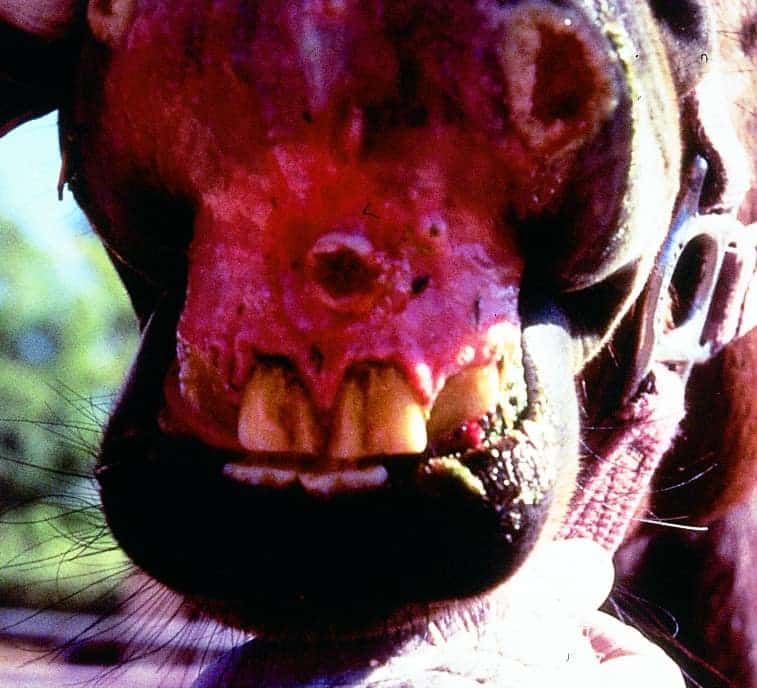How Can I Tell if My Horse Has Vesicular Stomatitis?
Vesicular Stomatitis causes mouth blisters, coronet band lesions lameness, and more. Learn about this insect-spread disease’s clinical signs from Dr. Angela Pelzel-McClusky, who serves as the USDA’s national equine epidemiologist.
- Topics: Diseases and Conditions, Media, Podcasts, Vesicular Stomatitis
Share
ADVERTISEMENT

Photo: Brian McCluskey
Vesicular Stomatitis causes mouth blisters, coronet band lesions lameness, and more. Learn about this insect-spread disease’s clinical signs from Dr. Angela Pelzel-McClusky, who serves as the USDA’s national equine epidemiologist.
This podcast is an excerpt from our Ask TheHorse Live Q&A, ‘Vesicular Stomatitis: An Emerging Equine Disease.’ Listen to the full recording here.
Share
Written by:
Angela Pelzel-McCluskey, DVM
Angela Pelzel-McCluskey, DVM, is the equine epidemiologist for the USDA Animal and Plant Health Inspection Service (APHIS) Veterinary Services. She is based in Fort Collins, Colorado. Pelzel-McCluskey obtained her veterinary degree in 2001 from Texas A&M University, in College Station. She worked in equine private practice in both Texas and Colorado and has served as an epidemiologist with state and federal animal health agencies since 2004. Pelzel-McCluskey currently oversees the federal response to reportable equine disease outbreaks nationwide and has been the lead epidemiologist for more than 25 state, regional, and national disease outbreak responses during her combined state and federal service.
Related Articles
Stay on top of the most recent Horse Health news with











